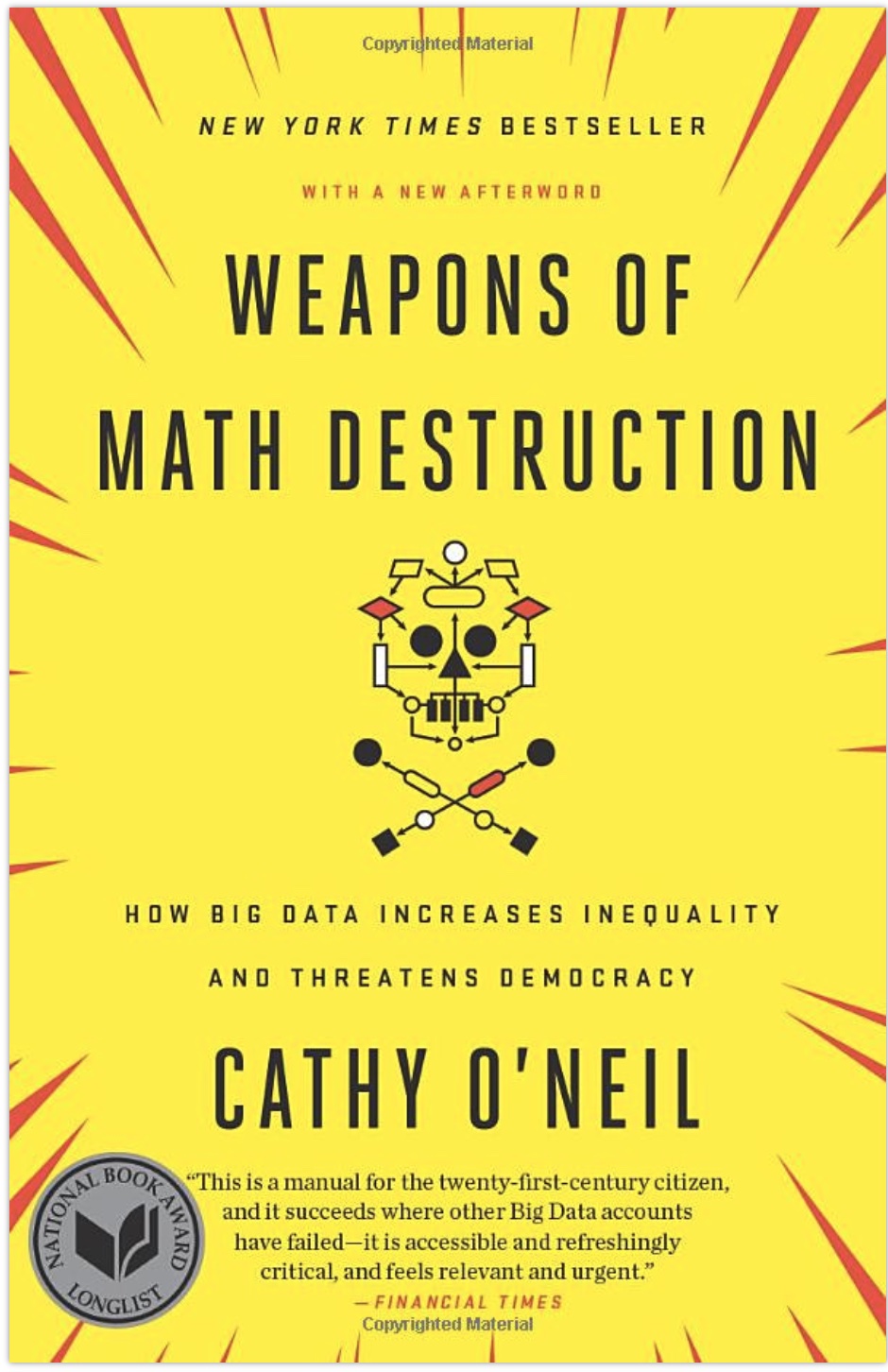Unveiling the Opaque Algorithms:
O’Neil takes us on a journey behind the scenes of algorithms, exposing their hidden nature. She compellingly refers to them as “Weapons of Math Destruction” (WMDs) that shape our lives in ways we may not even realize. What struck me is the lack of transparency and accountability surrounding these algorithms, leaving us unaware of their influence on our lives.
The Perpetuation of Bias:
One of the most troubling aspects O’Neil addresses is how these algorithms perpetuate and amplify biases. It all starts with historical data, which often reflects societal prejudices and systemic injustices. When these biased datasets are used to train algorithms, they absorb and reinforce discriminatory patterns. As a result, unfair outcomes occur, particularly in domains such as policing, lending, and employment, where marginalized communities suffer the most. O’Neil’s warning is clear: unless we address these biases, algorithms will only widen existing inequalities.
The Impact on Society:
The consequences of biased algorithms extend far beyond individual experiences. O’Neil argues convincingly that they contribute to the entrenchment of poverty, as they create barriers for marginalized individuals and communities, limiting their access to opportunities and resources. Furthermore, these algorithms can undermine democracy itself, perpetuating political polarization and influencing voter targeting and suppression. The decisions made by algorithms, shielded from public scrutiny, have far-reaching implications for society, exacerbating inequalities and eroding trust in institutions.
The Call for Ethical Algorithmic Practices:
Recognizing the urgency for change, O’Neil advocates for the adoption of ethical principles in algorithmic design and deployment. Transparency, accountability, and fairness are essential. Algorithms must undergo scrutiny and audits to ensure their decision-making processes are explainable and free from bias. O’Neil also highlights the need for diverse teams to develop and evaluate algorithms, mitigating the risk of inadvertently perpetuating biases. By embracing these principles, we can harness the power of algorithms while minimizing their negative impact on individuals and society.
ChatGPT:
An Algorithmic Assistant: Considering O’Neil’s insights, I reflected on the implications for AI language models like ChatGPT, which aim to provide human-like text and information to users. However, it’s essential to recognize that ChatGPT’s lack of complete transparency raises concerns. As users, we should be aware of the potential for biased outputs or the unintentional reinforcement of existing biases due to the data used to train such models. Responsible and unbiased use of AI language models requires ethical considerations, transparency, and ongoing scrutiny.
Cathy O’Neil gave a fantastic talk at Google about her book and the learnings. Enjoy this video:
Conclusion:
“Weapons of Math Destruction” by Cathy O’Neil shines a much-needed light on the dark side of algorithmic decision-making and its impact on society. The book urges us to confront the biases embedded in these algorithms and emphasizes the significance of transparency, accountability, and ethical practices. To create a fairer and more just society, we must take O’Neil’s warnings to heart and actively engage in discussions surrounding algorithmic accountability and fairness.
To gain a deeper understanding of the issues raised by Cathy O’Neil, I encourage you to explore her book, “Weapons of Math Destruction,” available on Amazon: link to Amazon page.
Disclaimer: This blog post represents my personal reflections and interpretation of the book “Weapons of Math Destruction” by Cathy O’Neil. The purpose of this post is to share insights and foster discussion on the topic of algorithmic decision-making and its societal impact. The views expressed in this blog post do not necessarily reflect those of the author.

